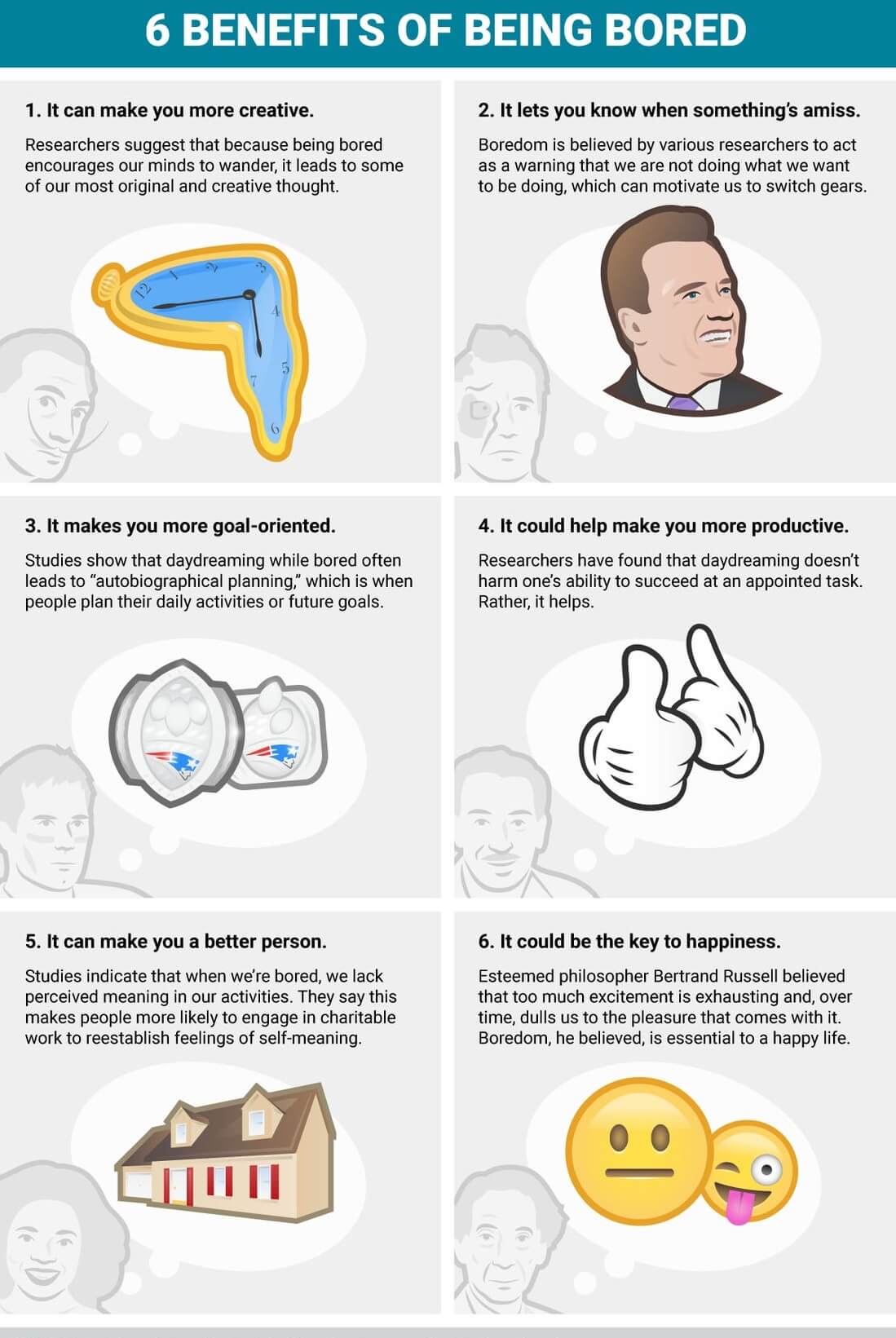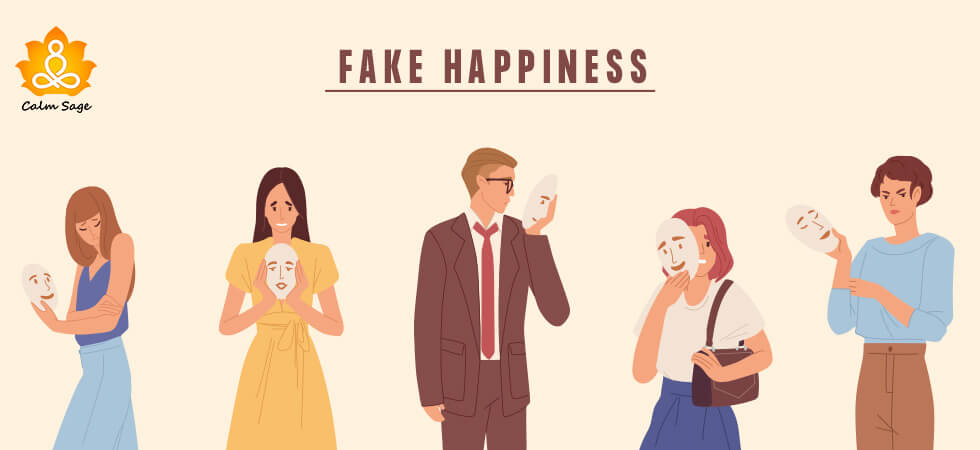Why Boredom Can Be Good For Your Psychological Health

Boredom is something that we all have experienced more than once – while sitting in a lecture hall, waiting at the airport for our flight, and even during a family gathering. These days we have so many things to keep our minds occupied. We can text or chat with our friends with a click, stream movies and TV shows online, or listen to music.
Boredom literally means “the state of being bored” but how can be being bored good for us? Boredom can be categorized as situational and repetitive. We experience situational boredom when we have literally nothing to do like standing at a bus stop waiting for a bus. Repetitive boredom, on the other hand, is when we are stuck in a loop doing the same task over and over and over.
While there are many negative emotions that can arise from boredom like depression, it can also have some positive outcomes as well.
There’s a book, “The Upside Of Downtime” by Sandi Mann, a psychology professor who wrote about embracing boredom and why boredom is good. In the book, she describes what we do, how we react, and cope when boredom arises. Mann says in her book,
“We’re trying to swipe and scroll the boredom away, but in doing that, we’re actually making ourselves more prone to boredom,”
When we are engaged in an activity just to get away from boredom, we aren’t giving our minds a chance to explore the reason for the said boredom and solve it.
This overstimulation that we give our minds by forcing them to stay interested only impacts negatively on our mental health, increase stress levels, decrease creativity, and increase the addiction to technology.
By embracing our boredom we are allowing our minds to slow down. By doing nothing we can lessen our anxiety, increase productivity, and become happier and creative in the long-term.
How Boredom Affects Mental Health?
“Boredom comes simply from ignorance and lack of imagination.” – Susan Ertz
Being bored is often viewed in a negative light but looking at boredom as a “time-out” can allow you to explore the opportunities to declutter your mind. It can be used as a time to reflect over, consider, create, reject, and rediscover new thoughts and possibilities. By embracing boredom, you’re actually doing your mind a favor.
Boredom breeds imagination. Being bored is important to develop intellectual abilities. Did you know that Albert Einstein took a boring desk job in a patent office to give his brain time and space to come up with new ideas?
Einstein termed this activity “Creative Boredom”. This allowed his brain to idle in a quiet zone (like a meditative state) and let it ponder on new inventions.
Scientific Benefits of Boredom:

1. It Sparks Creativity
When you allow yourself to be bored and not look at boredom as a waste of time, you allow your mind to wander and rest at the same time. Giving your mind a break from technology and other distractions sparks creativity. Daydreaming has the same process that helps increase imagination and creativity.
Next time you’re bored, switch off your phone and daydream.
2. It Increases Self-Reflection
Like I mentioned earlier, being bored and giving your mind a quiet space to think is akin to being in a meditative state. Boredom allows you to sit back and reflect on your emotions and thoughts. Self-reflection can help you understand yourself better and make improvements to your life if needed.
3. It Cultivates Mindfulness
Doing nothing is what mindfulness is, in a way. Practicing mindfulness means practicing the art of focusing your attention and awareness at the present moment. Mindfulness can help you improve sleep and emotional strength.
4. It Helps Us Discover New Hobbies
Boredom gives us extra time and energy to focus on something different and new. Being bored allows you to focus on finding something creative and new to do other than mindlessly scrolling through Instagram. Boredom might give you a chance to discover a new hobby that you’ll enjoy learning.
Make your boredom productive and interesting!
5. It Helps Us Unplug
While on one hand technology is highly useful, it is equally addictive as well. The constant use of smartphones and social media can increase your risk of stress, depression, and fatigue. Notice that when next time you’re bored, you’ll automatically look for your phone to engage in some kind of distraction.
Being on the phone can make you detach from yourself and from those around you. Next time you’re bored, put your phone aside and engage in old-fashioned activities like daydreaming, doodling, or simply observing life.
Boredom Is Good…
When I’m bored I prefer daydreaming. This activity provides me a mental escape from reality and my stressors. Stepping away from reality even for a while gives me time and space to actually reflect on my goals and life.
Learning how to utilize being bored is one way of ensuring that you’re never bored. Boredom can help you develop skills, understand, and regulate your thoughts, emotions, and feelings.
When boredom strikes, embrace it rather than looking for an escape. Allow your mind to wander for a while. Let it reflect on what is and what is needed.
“You need to let the little things that would ordinarily bore you suddenly thrill you.” – Andy Warhol
Live life to the fullest and enjoy the little things around you!





















yes, sometimes boredom makes you creative, whenever I am free, creating some crafting things
Can you also suggest how to effectively kill boredom?
Hi Chris, thanks for visiting Calm Sage. You can kill boredom in many ways such as daydreaming, doing arts and crafts, or engaging in an interesting hobby. The strategy to kill boredom lies within you. Any activity that engages your mind and body can help you effectively kill your boredom. Whatever you enjoy the most, whatever makes you engage, or whatever makes you happy is the ultimate solution. I hope this answered your question! For more, you can write to us at info@calmsage.com or visit us on our website here!